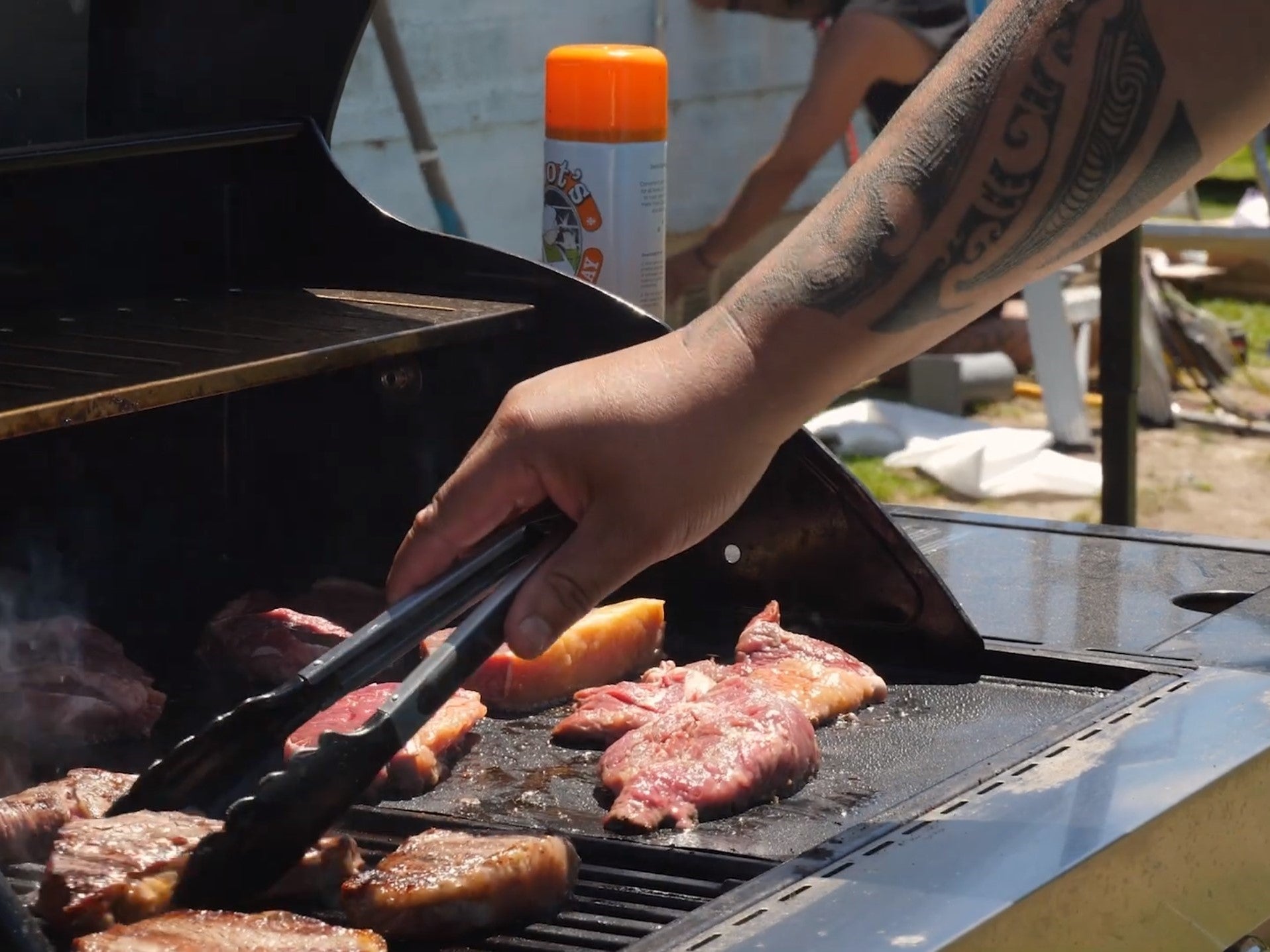One of the main things we tell people when they’re looking to power a full time off-grid lifestyle is that our solar kits aren’t designed to handle cooking – so no ovens or stovetops! They use a LOT of power, so it’s typically not cost effective to have an electric oven off-grid. Learn more about what not to run on solar.
So how else can you cook off grid?
There’s 3 main ways to do it: a non-electric solar solution, a gas cooker, or a woodburner.
Solar cooking:

Solar ovens are an option that we see every now and then. There are a few different designs, but they all work by reflecting the sun onto a dark container holding your food, and can be used to bake, roast, and even boil water.
They are simple to use and require no fuel, however they do require sunny weather to work properly, and can be quite slow compared to other methods. A solar oven is a great option in summer, but will not work all year round, so it’s best paired with another method for full time off grid living.
Gas cooking:
Gas is one of the most popular options for cooking off-grid, and it can work at all stages of your self-sufficiency journey, from the early days of an outdoor “kitchen” through to having a proper indoor set up.
Many off-gridders will start with a portable camping stove (usually stolen from their camping gear) and these range from the very compact tramping stoves, to single burners with a butane canister, to multi-burner outdoor stove/oven combos with a 9kg LPG cylinder. These are often housed in a well-ventilated lean-to sort of structure, for a covered outdoor kitchen.

A regular gas barbeque also works a treat off-grid if you have one. For people in more permanent situations, such as a tiny house or a proper homestead, will usually just install a gas oven and stovetop in their kitchen, allowing them to cook the same as they would with an electric oven.
The two minor drawbacks of gas cookers are need for ventilation and purchase of LPG, but these are balanced well by the ease of use. All gas cookers will require a small amount of power for a spark, whether it’s wired in or just a wee battery, but be aware that some permanent “hybrid” or “dual fuel” gas stoves use electricity for the oven, and avoid them!
Woodburner:
Just like gas-cookers, woodburners are a very popular solution with a huge range of options to suit every stage of the journey. A portable outdoor woodburner is an awesome option for cooking a meal at a time, and clipping a little water tank to the flue is an easy way to heat water without using the stovetop space.

These can also be used to heat small indoor spaces when used with a proper flue kit. For something that offers a larger cooking area (and an amazing taste) a charcoal grill is great option that’s still portable. Like a gas BBQ, these can bit more versatile, allowing you to roast/bake/smoke and grill in a smaller, more portable unit.

Off-gridders in more permanant situations will often get a large woodstove installed in their kitchen, which allows them to do all the normal cooking they would if they used an electric stove.
The main drawback of a permanent woodburner stove is also one of it’s advantages – heat. In winter, you can cook and heat your space/water with just one unit, but in summer it’s not quite so pleasant! These also don’t offer the same speed and precision as gas. Fuel however is a lot cheaper if you have trees on your off-grid property!

In summer, it can even be great fun to cook on a campfire! They're not overly practical in anything but mild weather, but they offer good entertainment value if you've got some companions and some drinks (or some sticks and marshmallows).
Preservation:
Not all meals need to be cooked with heat! The journey to self-sufficiency often requires you to learn a lot of new skills, and preserving food is a great one! Canning, drying, fermenting, and pickling are all methods to extend the shelf life of fresh foods, which can be a great way to both “cook” food, and mitigate a lack of refrigeration. There are plenty of resources out there to learn about food preservation, such as Fodder Farm.
-
There’s plenty of different ways to cook off-grid, and the best option totally depends on your situation, so luckily there’s plenty of solutions. To learn more about off-grid alternatives, check out our article about How to heat water off-grid.


